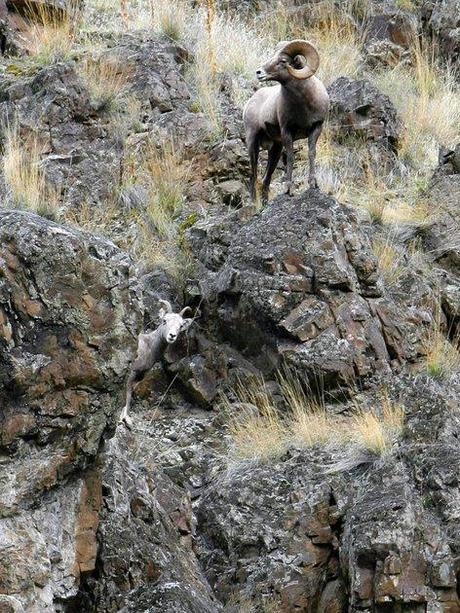
by Rocky Barker / Idaho Statesman
A federal judge upheld the decision by the Payette National Forest to close 70 percent of the forest to domestic sheep grazing to protect wild bighorn sheep.
U.S. 9th Circuit Judge Wallace Tashima denied a motion by the Idaho Wool Growers Association to overturn the 2010 decision by Payette National Forest Supervisor Suzanne Rainville aimed at separating domestic and bighorn sheep. Tashima ruled the Forest Service had followed the preponderance of evidence that domestic sheep carry diseases to the wild sheep populations.
The dispute began in 2007 when District Judge B. Lynn Winmill ordered ranchers to move their sheep off of five allotments on the Payette National Forest in Hells Canyon. The Forest Service was ordered to complete an environmental impact statement on sheep grazing in bighorn habitat.
The Wool Growers had used all its political might to try to delay and head off the Forest Service’s decision to close off the domestic sheep habitat, which came out of the EIS. Under pressure from Gov. Butch Otter and lawmakers, the Idaho Department of Fish and Game clarified its policy to kill bighorns if necessary when they mix with domestic sheep.
Three sheep ranchers – the Shirts Brothers, Carlson Co. and the Soulens – were affected by the decision and participated in the lawsuit. The Colorado Wool Growers Association also joined in the lawsuit because it has the most overlap between wild bighorn habitat and domestic sheep.
The Forest Service’s policy of doing a risk assessment of possible contact between domestic and wild sheep is now supported in federal court, said Craig Gehrke, Wilderness Society Idaho representative, who fought for the ruling for years to protect bighorns in the Hells Canyon Recreation Area.
The other area where this could have an impact in Idaho is in the Palisades Mountains and Tetons in the Caribou-Targhee National Forest. There, Idaho Republican Sen. Jeff Siddoway and his family have grazed sheep for generations.

